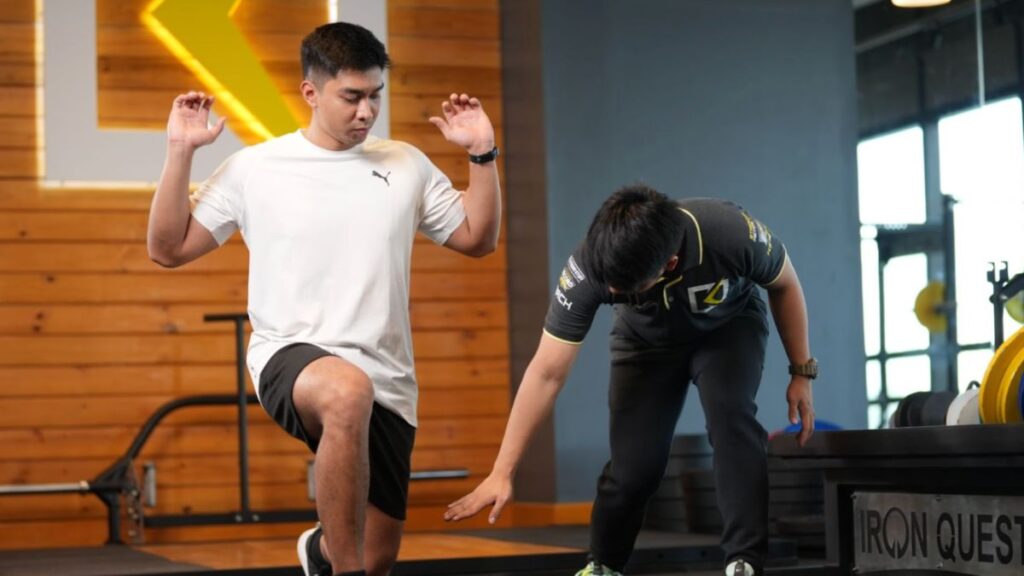In the expanding world of online personal and professional development, the lines between different roles can sometimes blur. Two terms that are often used interchangeably, yet represent vastly different functions, are “Influencers vs.Coaches.” While both can command large audiences and impact people’s decisions, their core purposes, methods, and ultimate goals are fundamentally distinct.
An influencer might persuade you to buy a new pair of running shoes, while a coach will teach you the proper running form to prevent injury. One inspires through aspiration and lifestyle, the other empowers through structured guidance and skill development. Understanding this distinction is crucial for anyone looking to follow, hire, or become one of these figures. This guide will explore the roles, goals, and methods of influencers and coaches, helping you identify which one aligns with your specific needs.
What is an Influencer? The Power of Persuasion
At its core, an influencer is a content creator who has built a dedicated following and a strong personal brand around a specific niche. This niche could be anything from fashion and beauty to gaming, finance, or travel. Their primary strength lies in their ability to affect the purchasing decisions and lifestyle choices of their audience due to their authority, knowledge, position, or relationship with their followers.
Primary Goals and Motivations
The main goal of an influencer is to build and maintain an engaged community. This engagement is the currency they use to monetize their platform. Their motivations often revolve around:
- Brand Building: An influencer’s most valuable asset is their personal brand. They invest significant time in curating a specific image, voice, and aesthetic that resonates with their target audience.
- Audience Growth: The larger and more engaged the audience, the more valuable the influencer becomes to brands. They constantly seek to expand their reach across various platforms.
- Monetization: Influencers primarily earn income through brand partnerships, sponsored content, affiliate marketing, and selling their own merchandise or products. Their financial success is directly tied to their ability to “influence” their followers’ behavior.
Methods of Engagement
Influencers connect with their audience through relatable, aspirational, or entertaining content. Their methods are designed for broad appeal and consistent engagement.
- Content Creation: They produce a steady stream of content, including photos, videos, stories, and live streams. This content is often polished and curated to fit their brand identity.
- Storytelling: Influencers are master storytellers. They share personal anecdotes, experiences, and lifestyle updates to build a connection that feels authentic and personal, even with a large audience.
- Product Promotion: A significant part of their work involves integrating products and services into their content. This can range from a direct “swipe up to buy” link to a more subtle placement within a lifestyle photo. They showcase how a product fits into their life, encouraging followers to adopt it as well.
What is a Coach? The Art of Empowerment
A coach, on the other hand, is a trained professional who partners with individuals or groups to help them achieve specific personal or professional goals. While they may have an online presence, their primary focus is not on broadcasting a lifestyle but on facilitating growth and change in their clients. Their work is rooted in education, accountability, and personalized guidance.
Primary Goals and Motivations
A coach’s success is measured by the success of their clients. Their goals are centered on tangible outcomes and transformation.
- Client Transformation: The ultimate goal is to help clients overcome obstacles, develop new skills, and reach their full potential. This could mean improving leadership skills, achieving a fitness milestone, or launching a business.
- Education and Skill Building: Coaches provide frameworks, strategies, and knowledge that empower clients. They teach repeatable processes that clients can use long after the coaching relationship ends.
- Personalized Guidance: Unlike the one-to-many approach of an influencer, coaching is typically a one-to-one or small-group engagement. The guidance is tailored to the unique challenges and aspirations of the individual client.
Methods of Engagement
Coaching involves a much deeper and more interactive form of engagement. It is a collaborative process built on trust and structure.
- Structured Programs: Coaches often use defined programs or frameworks that guide clients through a step-by-step process. This might involve regular meetings, goal-setting exercises, and progress tracking.
- Active Listening and Questioning: A key skill for a coach is the ability to ask powerful questions that help clients find their own answers. They listen actively to understand the client’s perspective and challenges.
- Accountability: Coaches hold their clients accountable for taking action. They provide support and encouragement but also ensure that clients stay on track with their commitments.
A Tale of Two Industries: Fitness, Business, and Lifestyle
To better understand the differences, let’s look at how influencers and coaches operate within the same industries.
In the Fitness World
- The Fitness Influencer: A fitness influencer might post workout videos, share their daily meals, and promote supplements or activewear. Their feed is often a highlight reel of their own fitness journey, showcasing impressive physical results. They inspire followers by presenting an aspirational physique and lifestyle. You might follow them for motivation and workout ideas. Their call to action is often, “Try my favorite protein powder with code FIT10!” or “Shop my workout set.” Their relationship with their audience is broad and inspirational.
- The Fitness Coach: A fitness coach, who is often a certified personal trainer, works directly with clients to create customized workout plans and nutrition strategies. They assess a client’s current fitness level, discuss their goals (e.g., run a marathon, lose 20 pounds), and design a program to get them there safely and effectively. They conduct form checks, adjust plans based on progress, and provide accountability through regular check-ins. Their call to action is, “Book a consultation to discuss your fitness goals.” Their relationship is deep and instructional.
In the Business Arena
- The Business Influencer: This individual might be a successful entrepreneur who shares high-level tips on “hustle culture,” productivity hacks, and the mindset of success. They post motivational quotes, share stories of their own business triumphs, and may promote software, books, or online courses that promise to streamline success. They influence followers to adopt a certain entrepreneurial mindset and use specific tools. Their content is designed to inspire ambition and action on a mass scale.
- The Business Coach: A business coach works with entrepreneurs or executives to address specific challenges. They might help a founder develop a business plan, refine a marketing strategy, or improve their leadership skills. The engagement involves in-depth discussions, strategic planning sessions, and measurable key performance indicators (KPIs). The coach doesn’t just tell you what to do; they work with you to figure out how to do it within the context of your specific business. Their value lies in their expertise and personalized strategic input.
In the Lifestyle Niche
- The Lifestyle Influencer: A lifestyle influencer curates a beautiful life online. They showcase their perfectly decorated home, their exotic travels, and their well-curated wardrobe. They influence their followers’ consumer choices in home decor, travel destinations, and fashion. They sell an aspirational aesthetic. Following them is like flipping through a high-end magazine; it’s about inspiration and discovery.
- The Life Coach: A life coach helps clients design a life that is fulfilling for them, regardless of what it looks like on the outside. They work with clients to identify core values, set meaningful goals, and build habits that support their well-being. A client might work with a life coach to navigate a career change, improve their relationships, or find a better work-life balance. The process is introspective and focused on internal alignment rather than external appearance.
The Blurring Lines: When Influencers Become Coaches (and Vice Versa)
The digital landscape is not always black and white. Many successful professionals operate in a gray area, blending elements of both roles.
An influencer with years of experience in a particular field may develop a deep expertise and decide to offer coaching services. For example, a successful food blogger might start offering small-group coaching on how to build a profitable food blog. Their influence gives them an audience, but their coaching offers a deeper, more structured value proposition.
Similarly, a highly effective coach may build a large online following by sharing valuable tips and client success stories. This makes them an influencer in their niche, and they might leverage that influence to secure speaking engagements or a book deal.
However, the distinction remains in their primary offering. Is the core product a broadcasted lifestyle intended to influence, or is it a personalized service designed to transform? The former is influence; the latter is coaching.
How to Choose: Do You Need an Influencer or a Coach?
Making the right choice depends entirely on your goals. Ask yourself what you are truly seeking.
You might need an INFLUENCER if:
- You’re looking for inspiration or ideas. You want to see what’s new in fashion, get ideas for your next vacation, or find motivation from someone’s success story.
- You need a product recommendation. You trust someone’s taste or expertise and want to know what they use and recommend.
- You’re seeking community and entertainment. You enjoy being part of a larger conversation around a shared interest and find their content entertaining or uplifting.
- Your need is broad and non-specific. You are in the discovery phase, exploring a new hobby or interest without a concrete goal yet.
You might need a COACH if:
- You have a specific, measurable goal. You want to achieve a tangible outcome, like launching your podcast in 90 days, improving your public speaking skills, or losing a specific amount of weight.
- You feel stuck and need a clear path forward. You’ve tried on your own but are struggling to make progress. You need a strategy and a structured plan.
- You need accountability and personalized support. You know what you need to do but have trouble staying consistent. You would benefit from someone checking in on your progress and providing tailored feedback.
- You want to develop a specific skill. You’re not just looking for inspiration; you want to learn a repeatable process from an expert who can guide you through the learning curve.
Conclusion: A Symbiotic Relationship
Influencers and coaches both play valuable roles in our modern world. Influencers are the spark—they ignite interest, create awareness, and inspire us to dream bigger. They are the magazine, the billboard, and the aspirational friend. Coaches are the engine—they provide the map, the tools, and the fuel to turn those dreams into reality. They are the teacher, the strategist, and the trusted guide.
One is not inherently better than the other; they simply serve different purposes. By understanding the fundamental differences in their goals, methods, and the value they provide, you can make more informed decisions. You can curate a social media feed that inspires you while also investing in professional relationships that empower you to grow. In the end, the key is to know when you need a megaphone to amplify a message and when you need a compass to find your way.











